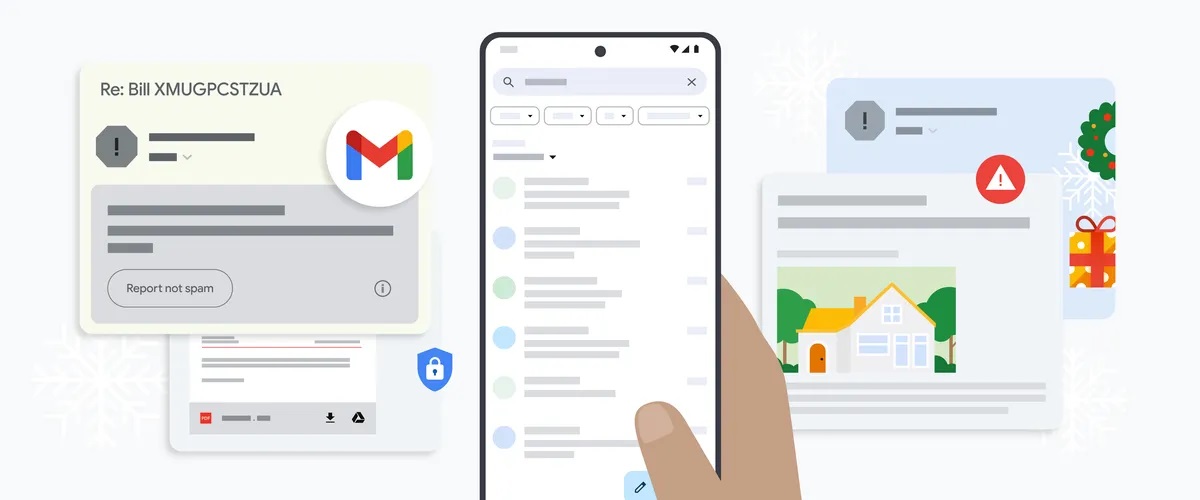This is an exciting time of year, one in which we spend quality time with friends and family and exchange presents with loved ones. Unfortunately, the holiday season is also when scammers work overtime to get their hands on your personal information by any means necessary. That’s why Google has been developing new features throughout the year to ensure that services like Gmail are ready to combat these holiday scams before they arrive.
In a blog post this week, Google senior director of product management Andy Wen claimed that Gmail users have reported 35% fewer scams reaching their inboxes during the first month of the 2024 holiday season than over the same period last year.
It turns out that artificial intelligence has been key to stopping scams in their tracks.
Google developed a series of AI models that “significantly strengthened Gmail cyber-defenses, including a new large language model (LLM) that we trained on phishing, malware and spam.” That one large language model alone is able to block 20% more spam than Gmail was blocking before while reviewing 1,000 times more user-reported spam daily.
For now, even the most advanced AI can’t stop every piece of spam from sneaking through the cracks. With that in mind, Google shared three scams that are in heavy rotation this holiday season that everyone should be doing their best to avoid:
- Invoice scams: This method involves scammers sending fake invoices to unsuspecting users, typically trying to solicit phone calls to dispute the “charges” and using this connection as a way to convince victims to pay them. These scams aren’t new, but are persistent and incredibly prevalent this holiday season.
- Celebrity scams: Over the past month, many of the most common scams popping up reference famous people, either pretending to come from the celebrity themself or claiming a given celebrity is endorsing a random product. The associations don’t always make much sense, but the goal of these campaigns is to use the association to build trust and trick people into engaging with “too good to be true” scenarios.
- Extortion scams: This brand of scam is vicious and scary. Victims receive emails with details on their home address, sometimes even including a picture of the location. There are a few different versions of the messages, but they generally either include threats of physical harm or threats of releasing damaging personal material they say they acquired through a hack.
In order to keep yourself safe, Google recommends taking your time to question suspicious emails before clicking any links or following any directions, double-checking the details for anything out of place, not sending money to anyone you don’t know, and marking any emails you don’t trust as spam. That way, Gmail might catch it next time.

